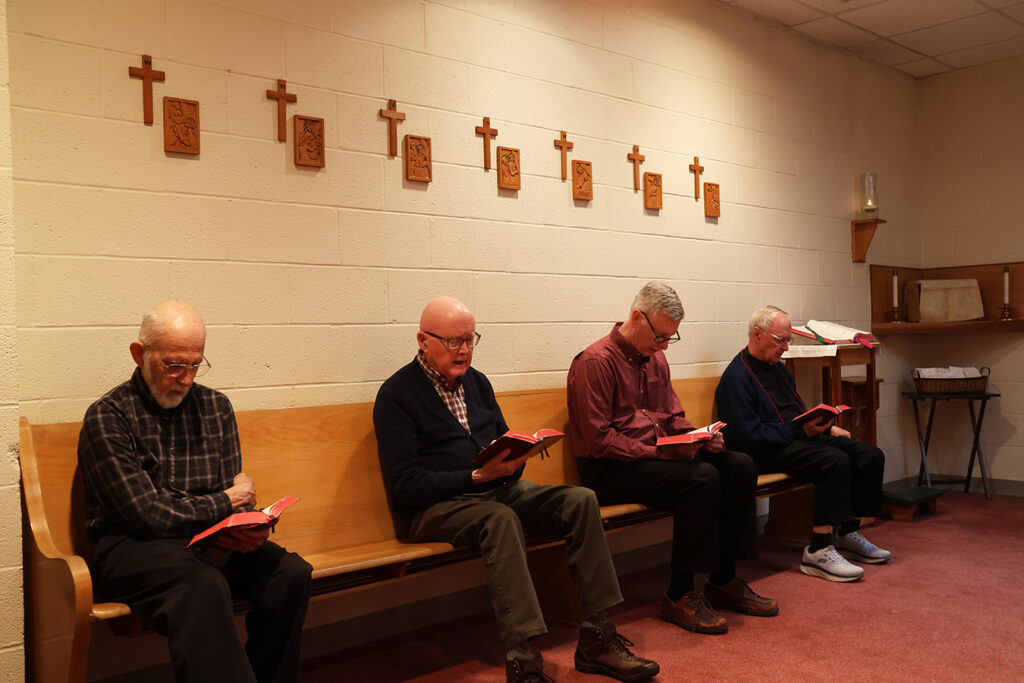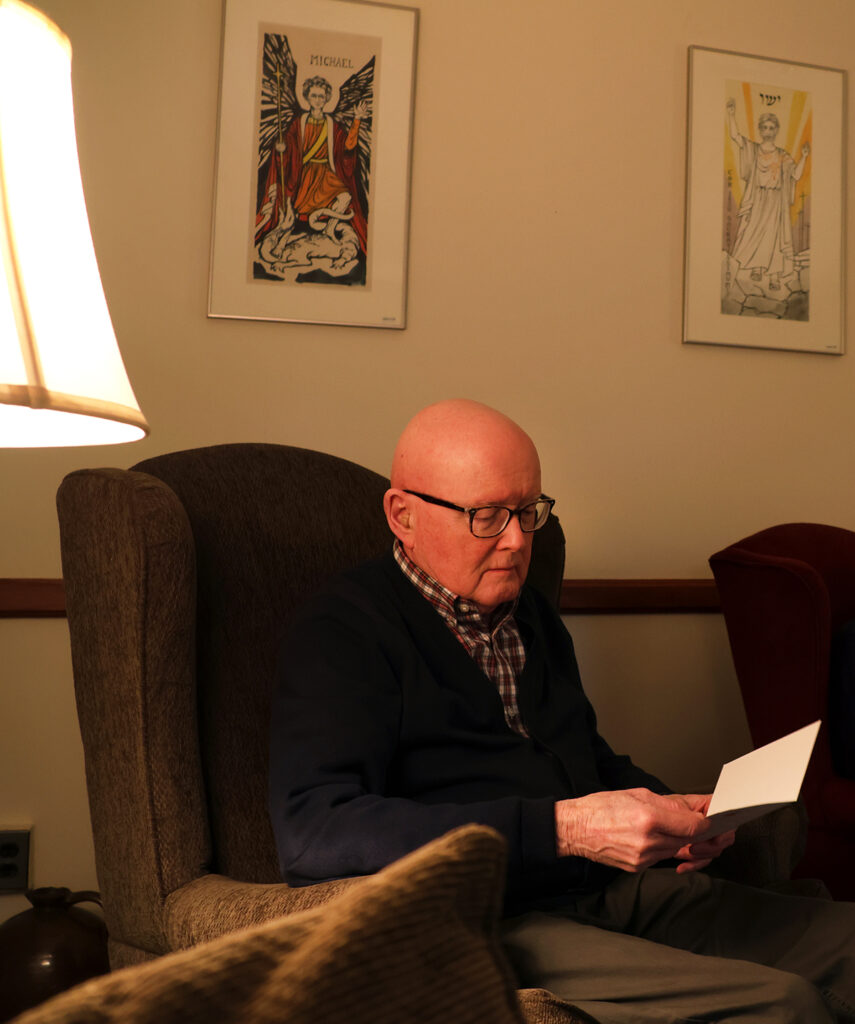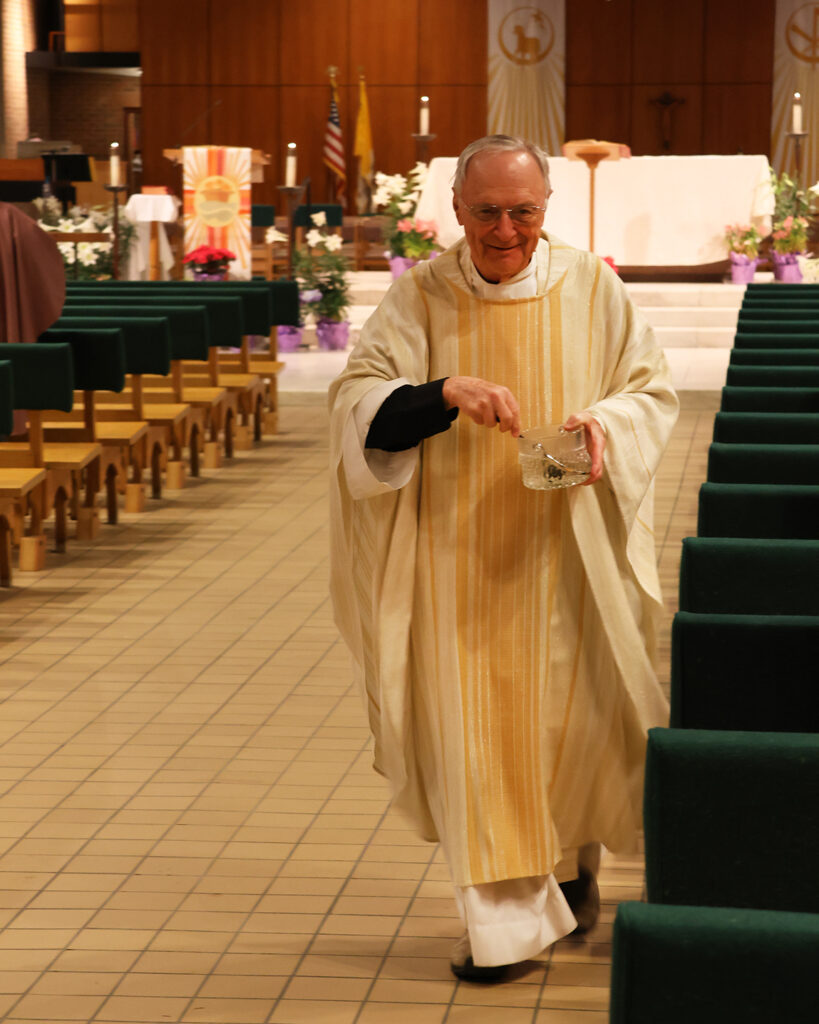
By: Erika Avellino l Arts & Culture Editor l eavellino@mail.smcvt.edu
In June of 2022 the Edmundites decided that after 180 years as a religious congregation, the Society of Saint Edmund would come into completion, and no longer accept or recruit new members. The decision was informed by a variety of factors, such as the size and age of the congregation. There are currently only 19 Edmundites left in the world. They reside in Vermont, Connecticut and Florida. Over the years that number has been dwindling from the peak of their membership at roughly 125 members in the 1970s. Rev. David Cray, Superior General of the Edmundites and 1968 alumnus, said the Edmundites had foreseen completion as a possibility for quite some time.
The decision was also informed by Catholic canonical law, which dictates whether or not religious congregations can continue. “There are certain technical things which are governed by canon law which is church law, Roman Catholic church law. And that defines, basically, in this case if we can continue to be a community or not,” said Rev. Marcel Rainville, campus minister and 1967 alumnus. “In one of them it involves the number of men who are qualified to be administrators of the community, and we didn’t have that, we didn’t have the sufficient numbers.”
However, following the Edmundite General Chapter in 2018, a meeting held every four years to reflect, discuss, and vote on administrative plans, there was a push from the society for “renewal,” to recruit new men into the society, with the Edmundites seeking advisement from lay people on a strategic plan do to so.
“That effort flopped, generally. We made some very big sacrifices.” Rainville said. The General Chapter was disappointed that they couldn’t come up with the manpower, after the large endeavor that was made to recruit new men into the society. Some efforts included Edmundites moving out of Nicole Hall, their long-time residence on campus, in prospect of housing new recruits, two of whom are still in the process of moving back in.
Father Cray expressed what this means for the society; “We will come in maybe 2026, certainly by 2030, to a point where we wouldn’t have enough men who were physically and mentally capable of forming an administration. Well, if you don’t have an administration, you don’t have a group. And if you’re not going to have a group, it’s not ethical to recruit people to join it.” Cray said.
Similar decisions are being made by smaller Christian congregations in America. “Even though it’s very sad for the Edmundites, it is part of a wider trend,” said James Byrne, professor of religious studies. The picture of the decline of religious membership in America is complex, but can be partly attributed to a decline in the number of men being ordained to priesthood, as there are roughly 2000 Catholics per priest in America.
“I think it’s really important that the college embraces and continues the Edmundites spirituality and heritage and mission, even if or when, there are very few active Edmundites here on campus,” Byrne said.
Rev. Brian Cummings, director of campus ministry, expressed that, “We serve God’s people by being an Edmundite, through the various assignments that we’re given, through the sacraments, through ministering at higher education, through retreats, through parishes. But what it means to me is it’s the way that I feel I fulfill my vocation as a Christian”.
“It’s a challenging time for the Church, a challenging time for the Society of St. Edmund as we look towards completion, but in the same way, though, there is a certainty of vocation. There’s a certainty of, whatever it is, we’re doing the lord’s work, and we’re called to do that work, whether or not new people are following us or not,” Cummings said.


Through the decades the Edmundites have not only been the backbone of St. Michael’s College, but pioneers in service and civil justice. The constitution of the Edmundites classifies their essential mission as evangelization, “Manifesting to the people that the church is for them,” which they do through their pastoral, educational and missionary works.
In 1937, Rev. Francis Casey, and Rev. John “Barney” Paro, responded to the call of Pope Pius XI for peace and justice by going to Selma, Alabama in an effort to establish a Catholic Church. In response to the food insecurity they witnessed, they served meals out of their backdoor to those who were hungry, and Edmundite Missions was born.
The Edmundites were also advocates of the Civil Rights Movement, garnering attention in 1965 when victims of police violence were cared for at the Edmundite-run Good Samaritan Hospital. Today, Edmundite Missions in Selma provides not only food, clothes, and shelter, but also mentorship, apprenticeship and education to poverty stricken individuals in the deep south. They have over 60 employees and hundreds of volunteers throughout the year, including groups from St. Michaels.
Chad McEachern,’91, the president and C.E.O of Edmundite Missions expressed in an email that the most important part of leading the missions is being able to safeguard the important legacy, charism and spirit of the Society of St. Edmund and deliver it into the future. He said the missions, in providing assistance to the community of Selma through a variety of means, responds to the present needs in people’s lives.
“The Edmundites have been such a huge part of my life since I went to St. Michaels,” McEachern said. “When I first heard about the Society entering completion I was devastated and, in some ways, remain so. It’s like losing a family member.” “I want to help raise up the next group of folks who will ensure the Society’s legacy continues to shine brightly.”
During an April 24 online conference of fellow superiors from different religious congregations, Father Cray expressed the idea that, “We’re phasing out, you know, there’s a negative aspect of that, but a lot of good stuff is happening.” In Selma Alabama, not only are there present efforts to house, cloth and feed impoverished and marginalized populations, but in connection with that, they’re supporting agriculture.
“African American farms in the country are supplying food now to the missions,” said Cray. “And one of those men, he used to not be able to get rid of his produce because he had no place to store and no place to ship it. Now we’re using so much of it. He had to hire two more men to work for him. So jobs are being produced.”
Another prominent Edmundite Mission was in Venezuela. Cray explained that in the 1960s, they opened a parish in Prados del Este in order to support the missionary work in Las Minas. “That in itself was the ministry to get the rich people paying attention to the poor people, and the poor people were able to benefit from some of the wealth that the wealthier people had,” Cray said. They also provided medical and dental care and assisted their religious sisters in educational work.
Father Rainville spent 20 years ministering in Venezuela, and is the current spiritual director for the LEAP program here on campus. This program facilitates activities, retreats and talks that assist young adults in deepening their relationship to God and and strengthening their commitment to God’s people. Despite noticing some decline in participation over the years, Rainville said it is still popular and has been around for almost 50 years. “It has topics that speak to young people today,” Rainville said.
There has also been question as to how St. Michaels would safeguard the Edmundites’ history and legacy. Rev Cray made note that “We are blessed. Because the President of St. Michael’s college Dr. Sterrit at the time and still Dr. Sterrit and the Board of Trustees, they want St. Michaels to remain identified as an Edmundite College.”
Despite the Edmundites moving towards completion, it is evident that their mission is still very much alive today, not only in Alabama and Vermont, but through the collaboration of people in continuing the work of earlier Edmundite missions.
“I think we all went through and probably still go through a certain kind of morning process, a grieving process. And so it’s tough but at the same time there’s still some consolation in the fact we look back and alot of good things have happened,” Rainville said. In response to what he hopes students take away from the Edmundite’s presence, Father Rainville said he hopes people “See it as a call if they themselves need to be those spirit agents going forward” and “Make it their own vocation to see that the mission is cared for”.

